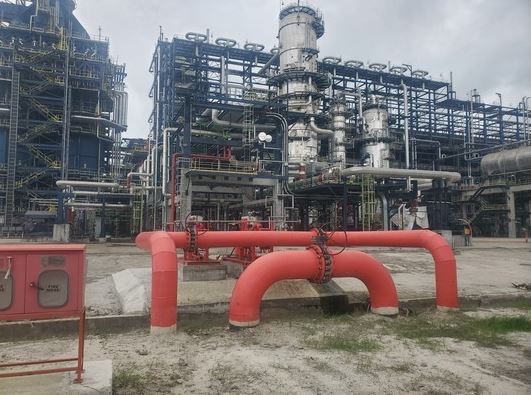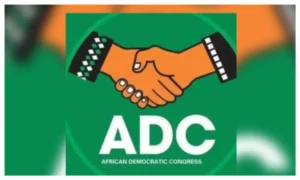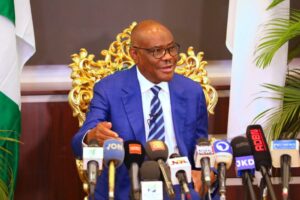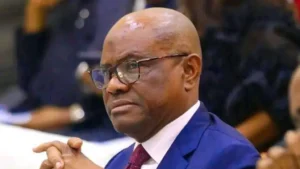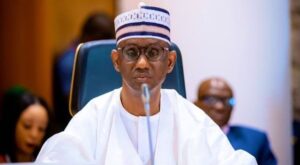The Nigerian government has officially begun selling crude oil and refined petroleum products in exchange for naira, starting October 1, 2024. This initiative, known as the naira-for-crude program, is aimed at strengthening the local currency and improving the availability of petroleum products throughout the country. By eliminating the need for foreign currency in these transactions, the government hopes to ease pressure on the naira, reduce unnecessary transaction costs, and create a more stable supply of fuel.
The Ministry of Finance announced the launch of this initiative on its social media platform, X (formerly known as Twitter), on October 1. While the government did not provide specific details on the contracts or pricing, it was made clear that crude oil and refined products would be sold in naira moving forward.
The statement read, “The Minister of Finance and Coordinating Minister of the Economy announced that, in line with the Federal Executive Council directive, the sale of crude oil and refined petroleum products in naira has officially commenced as of October 1, 2024.
“Following a meeting of the Implementation Committee chaired by the Minister of Finance on October 3, 2024, to conduct a post-commencement review of the Crude Oil and Refined Products Sales in Naira initiative, the commencement of this strategic initiative was affirmed by key stakeholders.”
Confirming the continuation of the agreement, Mr. Dare Adekanbi, Special Adviser on Media to the Federal Inland Revenue Service Chairman, affirmed that the deal to supply crude oil to the $20 billion Lekki-based Dangote refinery remains in place. As part of this arrangement, the Dangote refinery will receive crude oil in naira and, in return, will supply petrol and diesel of equal value to the Nigerian domestic market, also payable in naira.
Despite the government’s announcement, officials from Dangote refinery and other refineries stated that they were unaware if the deal had officially commenced. This has caused some confusion as key industry players, including the Nigerian Upstream Petroleum Regulatory Commission, the Nigerian National Petroleum Company (NNPC), and the Federal Ministry of Finance, have not provided any updates. The silence from these institutions raises questions about the timeline and full implementation of the naira-for-crude deal.
The naira-for-crude initiative was introduced to address several economic challenges Nigeria has been facing. One of the key benefits is to reduce the country’s heavy reliance on foreign currency for crude oil transactions, which has been putting pressure on the naira’s value. By conducting these deals in naira, the government aims to ease the demand for foreign exchange, stabilize the naira, and cut out extra transaction costs that often make fuel more expensive.
“From October 1, NNPC will commence the supply of about 385kbpd (385,000 barrels per day) of crude oil to the Dangote refinery to be paid for in naira,” the committee had declared.
Another major goal of this initiative is to improve the supply of petroleum products in the domestic market. With the Dangote refinery set to supply petrol and diesel to the local market, Nigeria could see a more consistent flow of these essential products. This would help ease fuel shortages and reduce dependency on fuel imports.
“Since then, the implementation committee chaired by the Minister of Finance and we, the technical committee, have worked intensely with NNPC and Dangote refinery to fashion out the details of the modalities for the implementation of the FEC approval,” Adedeji had stated.
While stating that crude would be sold to Dangote in naira from October 1, the committee chairman and FIRS boss said, “In return, the Dangote refinery will supply PMS (petrol) and diesel of equivalent value to the domestic market to be paid in naira.
“Diesel will be sold in naira by the Dangote refinery to any interested off-taker. PMS will only be sold to NNPC. NNPC will then sell to various marketers for now. All associated regulatory costs (NPA, NIMASA, etc.) will also be paid in naira. We are also setting up a one-stop shop that will coordinate service provision from all regulatory agencies, security agencies, and other stakeholders to ensure a smooth implementation of this initiative.”
Several high-profile officials and industry leaders have been part of the discussions surrounding the naira-for-crude initiative. They include:
- Heineken Lokpobiri, Minister of State for Petroleum
- Zaccheus Adedeji, Special Adviser to the President on Revenue
- Olu Verheijen, Special Adviser to the President on Energy
- Engr. Farouk Ahmed, Chief Executive of the Nigerian Midstream and Downstream Petroleum Regulatory Authority
- Mele Kyari, Group Chief Executive Officer of the Nigerian National Petroleum Company (NNPC)
- Umar Ajiya, Chief Financial Officer of NNPC
These individuals are working alongside representatives from the Dangote Group to ensure that the initiative benefits both the economy and the fuel supply chain.
While the naira-for-crude initiative has officially started, there is still some uncertainty about how quickly the program will fully take off. The lack of clarity from key refineries and regulatory bodies suggests that more work needs to be done before the full benefits of this initiative are realized. However, the government remains optimistic that this move will lead to a stronger naira, lower costs, and a better supply of fuel in the coming months.
The start of naira-for-crude oil sales marks a significant shift in Nigeria’s economic strategy. By reducing the need for foreign currency in these transactions, the government hopes to strengthen the naira and ensure a more stable fuel supply. While there are still unanswered questions, the success of this initiative could have long-term positive effects on the economy and the everyday lives of Nigerians.
